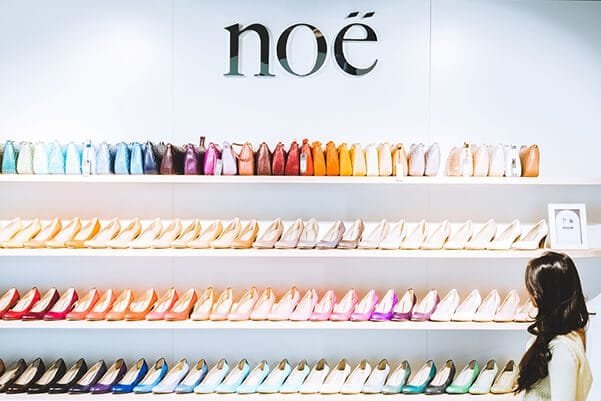Where fair trade is a way of doing business, ethical fashion refers to the production of a textile product and encompasses the whole life cycle of the product from the raw materials, through the finishing processes, to the construction.
Source - TedResearch

Ever since Crazy Rich Asians – a terrific all-Asian star-studded movie with a lot of fashionable razzle-dazzle scattered its magic globally, all eyes and ears have been on the Asians ‘in-vogue’. And why not - there were some serious fashion inspirations to be noted, which is merely a visual representation of some of the truly talented fashion designers from the Far East. But sadly, this wasn’t always so.
Let’s assume you saw two handbags on display where one tag read ‘Made in Italy’ while the other read, ‘Made in India’. Moment of truth - between the two, which bag would you pick up first? For many fashion consumers and related industries in the West, tags such as ‘Made in Pakistan’, ‘Made in Bangladesh’, ‘Made in India’ and the likes have become something to give second thoughts to. More than half the garment distributors in Europe abstain from using clothes that carry the 'Made in Bangladesh' tags, which is something rather perplexing that puts into question the skill and abilities of the country's manufacturers, given the fact that Bangladesh is the second-largest apparel supplier in the world.
It doesn’t help the reputation of nations like China, that their products are synonymous to cheap prices and low quality. If you’re in Switzerland and want a top of the line Swiss watch you will naturally buy it there but if you wanted to produce a watch that looks practically the same but with a lower price, you would consider China for the job. Fact, opinion, bias, or stereotype?
For many in the West, the ‘Made in Asia’ tags have become synonymous with low-cost, low-quality, inferior designs, and assembled somewhere in a shady warehouse. The poor image of an underdeveloped nation alongside substandard workplace morals and low wages are allegedly why the European fashion industry has been driven to sidestep these labels.
Aisha Saraf, founder of AISPI meets a wide gamut of designers, and most of them manage their production in Europe for a variety of reasons. In most cases, since the brand is local and up-coming, it cannot take it's production process overseas and hire large corporations in Asia to manufacture the product. However, a significant portion of these designers also manufacture their products locally to be able to market their offering as 'Made in Europe' - thereby allowing them to scale pricing up to a large degree and most of the time, unreasonably.
Often present at fashion weeks, curation trips and trade shows, Aisha addresses designers with the standard questions – what are the materials used, design philosophy, and price. High prices are occasionally justified on the basis that it was handmade in Europe which in AISPI's opinion should not be the justification.
When asked to justify the price of the product, in addition to the material used, designers often throw in that it is made in Europe therefore the labor is higher and it is a price that consumers pay for 'ethical production'. Manufacturing in Europe is a conscious business decision taken by the designer to reduce carbon emissions, maintain control of production and due to their small order quantities. Designers should not use made in Europe as the reasoning behind high pricing. Being made in the West solely doesn’t mean it’s an ethical company but manufacturing by fair means, ensuring good working conditions, and giving the labor a good life is what it is - something that can be done in a developing country as well.
Aisha Saraf - Founder at AISPI
It is important to note that countries in Asia - particularly India, Bangladesh, and Pakistan - are home to generations of skilled laborers who offer workmanship and talent that is globally unrivaled. A few designers to note from these countries - Sabyasachi (who has collaborated with footwear maestro Christian Louboutin), Rahul Mishra, Manish Arora - all stand testimony to the fact that couture quality of design and production is not limited to just the developed parts of the world. In fact, as it happens, customers would be hard-pressed to find this quality of craftsmanship anywhere else in the world.

Manish Arora 
Rahul Mishra

Ethically, it is possible to make products that are of great quality without expecting the customers to compromise for it. A price tag should be justified on the basis of the materials that constitute the product in question (a must and something that AISPI has constantly and passionately been advocating), the fee of the laborer (and the quality of life and working conditions provided to him/her), the overhead costs that are generated in bringing the product to life and eventually into the hands of the customer, as well as the value it brings to the customer - whether in terms of the value of wearing a piece from the brand, functional value or the emotional value it brings to the life of the wearer.
At the end of the day, it is important to understand the dynamics that have led to this widespread perception. It can be safely said that as long as fast fashion brands remain a key player in the global fashion industry, the demand for cheaper clothing and as a subsequent result, cheaper labor, will prevail. As a result, local designers can better position a 'Made In Europe' product in the market and rake in (often unnecessarily) high profits from it. It is necessary to understand, though, that the demand for fast fashion will inevitably fall (evident in fast fashion giant Forever 21's latest filings for bankruptcy) and the customer will eventually turn to products that are sustainable, ethically made (and justifiably so!) and provide value to them for the quality it offers and the price it retails at, and not just for the 'Made in Europe' tag it carries.
Follow AISPI on our Instagram and send us a message if you want to learn more about producing ethically in developing countries.
-Sureka Naven and Soha Joshi
Feature image courtesy - Design Art Magazine (www.designartmagazine.com)
Read more

We have for you today an interesting read on solar powered blonde. Yes, that’s Hanna Thomas and her Instagram handle. Rightfully so as she savors exotic places where there is plenty of sun. This y...

London Fashion Week - BoF picks the designers to watch out for! Hot on the heels of London Fashion Week last month, Business of Fashion lists the designers to watch out for. For a long time no...


